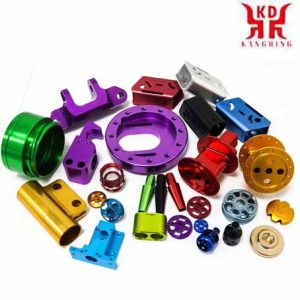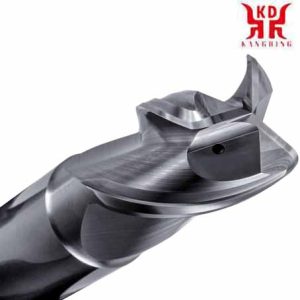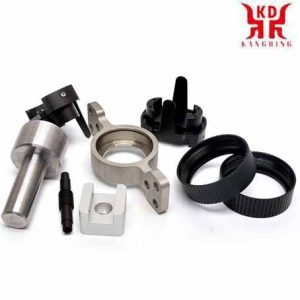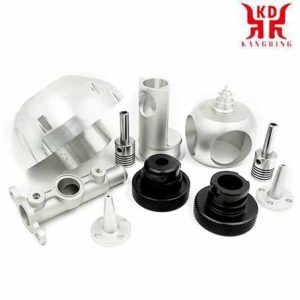Usinagem de peças de alumínio e seu processo. Configure os parâmetros de fresagem. Selecione a ferramenta.
1 Usinagem de alumínio: o que é isso
1.1 Características do alumínio para usinagem
2 Processo de usinagem de peças de alumínio
2.1 Ferramentas para usinagem de alumínio: considerações
3 Usinagem profissional de alumínio

Tecnologia de usinagem de peças de alumínio
Thanks to its characteristics, aluminum is one of the most used materials in the industry and, specifically, the machining of aluminum is much more profitable and productive to obtain parts.
In this post, we are going to explain in more detail what aluminum machining is, what its characteristics are, and what basic considerations must be taken into account in order to choose the right tools.
Atualmente, there are hundreds of alloys that have managed to meet the high service requirements. There are alloys destined for high temperature services to withstand repetitive fatigue cycles, just as there are light aluminum and titanium alloys capable of withstanding great efforts. That is why there are sufficient reasons to achieve the correct machining of aluminum parts, specifically because it is one of the most widely applied materials in the industry, sectors such as aerospace, automotive, railway, energy and machine construction have achieved in the use aluminum is a great ally to complement your production processes, making them more profitable and productive.
Regardless of the industrial sector in which you work. KangDing ideal solutions for high-speed machining in prototyping, in the mold building industry and in fully automated small series part production. Sectors where precision and surface quality are important factors.
For the machining of aluminum parts, the tools common to those used in the machining of common steel are used, only with the variation of the cutting angles and the shape of the tool. Aluminum is characterized by being a material capable of releasing a lot of chips during cutting, as well as dulling a large amount of chips at the cutting point of the tool, which can generate wear quite early in the cut. herself.
The cutting force required for machining aluminum parts is much lower than that required for machining other alloys. Também, due to the high thermal conductivity of aluminum, the heat generated during cutting can be dissipated very quickly. No entanto, the use of a coolant is always essential to extend the durability of the tool.

Aluminum machining tool
Aluminum machining: what is it?
Machining is the process to manufacture parts by removing excess material, which can be by chip removal or abrasion. Nesse caso, the machining of aluminum uses this material as its raw material for the manufacture of parts through this method.
For its part, aluminum is a very malleable, low-density material that allows it to be worked easily and at high speeds. Por esta razão, the naval, aeroespacial, automotive, railway, or construction sectors, among others, use aluminum machining on a recurring basis.
But there is no aluminum in a single composition. Actually, there are more than a thousand different possible alloys, which are achieved by adding one or more additional elements to pure aluminum, in order to further improve its characteristics.
Por isso, to choose the specific aluminum alloy for the manufacture of parts, various factors come into play, como: its resistance to corrosion, dureza, price, weight and even its appearance.
That said, by way of example, these are some of the alloys used in industry for machining processes:
Alumínio 6061. One of the most used for its great versatility and low cost. It is commonly used for the manufacture of automotive or aviation components, among others.
Alumínio 5083. With great resistance to corrosion and very suitable for welding, it is very common for use in the nautical sector.
7075 alumínio. It offers high thermal resistance and hardness, although it is one of the most expensive aluminum. But it is usually used for the manufacture of parts that are going to be subjected to great fatigue.

Surface precision technology of aluminum machining
Características do alumínio para usinagem
Em geral, this material is characterized by being highly deformable and having a low density, as well as being resistant to corrosion and a good thermal and electrical conductor. Além disso, depending on its alloy, it can reach great hardness and can even be recycled and used again without losing its properties.
These favorable technical aspects are coupled with the fact that it is an abundant material, and whose price is quite affordable, so it is understandable why it has become one of the star materials for the industry.
Por outro lado, during the machining process, the machines exert less cutting force. Por isso, this material consumes much less energy during its production, compared to other materials such as steel, but it goes faster, increasing productivity and efficiency without losing cutting precision.
Specifically, the force required for the aluminum machining process is around 30% of the force required during the machining of steel. No entanto, the friction of aluminum with the cutting pieces is higher, with respect to that suffered by other materials.
This increased friction could lead to the appearance of dulling, causing deterioration in the machined aluminum surface, if it is subjected to low speeds or at high speeds with inadequate cooling.
Dulling has to do with the accumulation of material that forms on the cutting surface, above the cutting edge, and that can cause problems in machining, leading to unwanted shapes, poor finishes and incorrect dimensions.
But this problem can be adequately solved by using a coolant, increasing the hardness of the aluminum alloy or even adjusting the cutting speed.

Milling technology of aluminum parts
Processo de usinagem de peças de alumínio
To obtain the best results with aluminum machining, it is necessary to know this material well, in order to know how to apply the appropriate tools and techniques.
Por isso, por exemplo, it is convenient to know in advance what will be the aluminum alloy to apply in the manufacture of the piece. This will protect the tools and be able to indicate all the necessary measures during machining.
For its part, the machining of aluminum can be done by chip removal, through a CNC machining center or lathe, or by electrosion or laser cutting. Focusing on chip removal, aluminum machining supports any process.
Both milling, girando, drilling or saw cutting, can be used to create aluminum parts, as long as a series of specific parameters are established for each case.
Ferramentas para usinagem de alumínio: considerações
When selecting the tools to use for machining aluminum, a series of aspects must be considered that will be key to obtaining the best result.
Desta maneira, it is necessary that the cutting pieces are well sharpened, their rake angles are greater than those applied for machining steel, and the adequate evacuation of excess material is taken into account, in order to avoid dulling and pouring to lose the piece, as well as deteriorate the machinery.
Por outro lado, despite its good thermal conductivity, it is appropriate to use a coolant, which will further improve the cutting conditions and help evacuate the detached material, avoiding dullness.
Likewise, you have to use tools that are as durable, powerful and resistant as possible; and prioritize materials such as hard metal, high speed steel and diamond, as they work well against cutting aluminum.
Heavy metal. It consists of a mixture of cobalt and tungsten, offering the tool a longer useful life. Its use is suitable in the machining of aluminum with large amounts of silicon, and against high speeds.
High speed steels. They are steels of great hardness and resistance to wear, which offer high performance, thanks to their alloy with other materials such as chromium, cobalt or tungsten. They are also the best option for machining aluminum with a low amount of silicon in its alloy.
Diamond. Diamond tools stand out for their long service life, and their use in short-chip aluminum machining stands out.
That said, any machine could work for machining aluminum, as long as the recommended minimum cutting speeds are achieved for each particular alloy, and that it does not produce vibrations at high speeds.
Finalmente, the most advisable thing would be to opt for rigid machinery with firm bearings, taking into account the capacity of the turning axis, and the aforementioned chip evacuation capacity.
Considerations in machining aluminum parts
Alumínio, despite being a relatively soft material, has a high ductility that has allowed its properties to be improved when it is heat treated or when mixed with other elements. Por esta razão, it is increasingly used in different industrial applications. No entanto, it is pertinent to know a series of factors in order to improve the machining processes of aluminum parts. It should be noted that new technologies work easily with aluminum parts, thus obtaining parts with high dimensional precision and excellent quality in the surface finish. Such is the case with CNC machining.
The increasing use of light alloys has allowed the machining of aluminum parts to meet the expectations of the naval, aeroespacial, automotive and many other industries, thus offering products that comply with demanding manufacturing codes and standards. Aluminum is considered a material with a great future due to its wide industrial applications that make it indispensable for different sectors.
At KangDing we do machining of aluminum parts and other materials
At KangDing since 2004 we have been dedicated to the machining of aluminum parts and other materials. We make parts and sets of parts, as well as complete machines. Our projects are executed in communication with the client, so we carry out designs for manufacturers of machinery in general and technical offices. We have kept pace with technology, getting the best and the most modern. Visit our website and request a budget without obligation.
 English
English العربية
العربية 中文(漢字)
中文(漢字) Čeština
Čeština Dansk
Dansk Nederlands
Nederlands Suomi
Suomi Français
Français Deutsch
Deutsch Italiano
Italiano 日本語
日本語 ಕನ್ನಡ
ಕನ್ನಡ 한국어
한국어 Português
Português Русский
Русский Slovenčina
Slovenčina Español
Español Svenska
Svenska Türkçe
Türkçe

